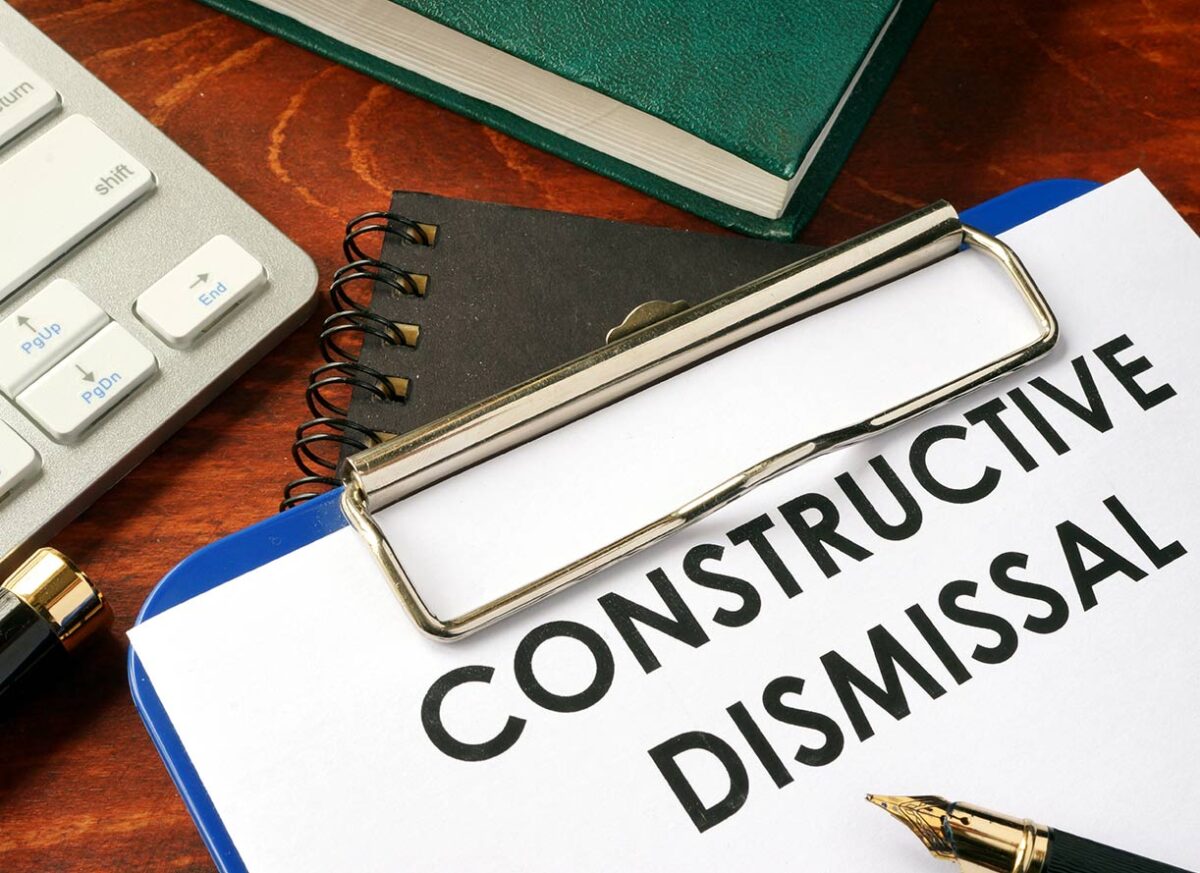Has your role changed? Is your employer lowering your compensation? You may be questioning the employer’s right to do this, and you may be considering a constructive dismissal claim while still working. Well, do not wait too long. A recent decision ruled that waiting 10 days was a sign that an employee had condoned the changes.
While hesitation to move forward with a constructive dismissal claim is understandable, there is a consequence to waiting. Wait too long, and your right to claim constructive dismissal may be lost. Without immediate action on your part, you may be seen to have accepted the changes made by your employer.
How can you claim constructive dismissal while you are still working?
Any unilateral substantial change to the terms of your employment, which you have not consented to, either explicitly or implicitly, could trigger a right on your part to claim constructive dismissal. A demotion, a significant reduction in your compensation, a material change in your duties and responsibilities resulting in a loss of status – these are all common examples of a potential constructive dismissal. In the face of such changes, continuing to work without any protest or claim against your employer may be considered as implicit consent or acquiescence to the changed employment terms.
In a recent decision, Kosteckyj v Paramount Resources Ltd, 2022 ABCA 230, Paramount unilaterally announced across-the-board reductions in salaries and benefits as part of corporate cost-cutting measures. Ms. Kosteckyj neither expressly rejected nor accepted the salary reduction. Without saying anything, she continued to work for 3 weeks following the reduction in pay. The company then downsized to further cut costs and she was fired. The Alberta Court of Appeal found that the fact she continued to work for three weeks after the reduction in pay was “indisputable evidence” that she had accepted the new terms of employment. As a result, the termination pay she received from being fired was calculated based on her newly reduced salary. At the end of the day, her failure to signal her rejection of the lower salary meant that her termination package was $10,000 less than if she had expressed disagreement with the changes to pay. A simple failure to act cost her significantly.
What does this court decision mean for you?
Substantial changes to employment terms often occur as employers try to reduce costs. Ms. Kosteckyj’s situation likely happens to many people.
If you find yourself in this situation, remember that hesitation and inaction can be costly. The most important thing to do is to make clear you do not agree with the changes to your employment, so you continue to work under protest. You should also contact an experienced employment lawyer to help you assess your situation before you take the drastic step of quitting your job and claiming constructive dismissal.
If you wait too long after changes are imposed on you, you could end up being seen as having consented to the changes. If you do not wait at all, and immediately resign out of frustration, claiming constructive dismissal, you may be seen to have simply resigned voluntarily and not be entitled to any termination pay or EI benefits. A proper legal assessment of your situation early on will give you more certainty about whether the changes trigger a possible constructive dismissal claim and guide you on what to do next.
Consult with an Employment Law Firm immediately because the window for action is narrow. And the stakes are high.
If you need guidance from an experienced employment lawyer, contact Hum Law today at (416)214-2329 or Complete our Free Assessment Form Here.


